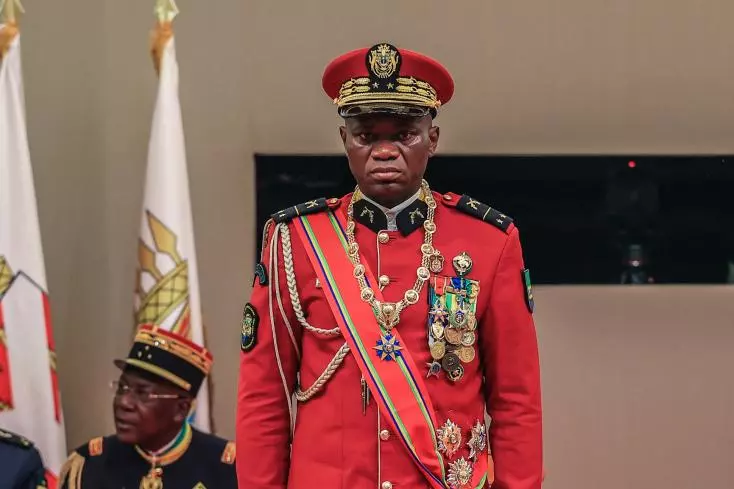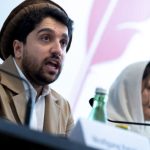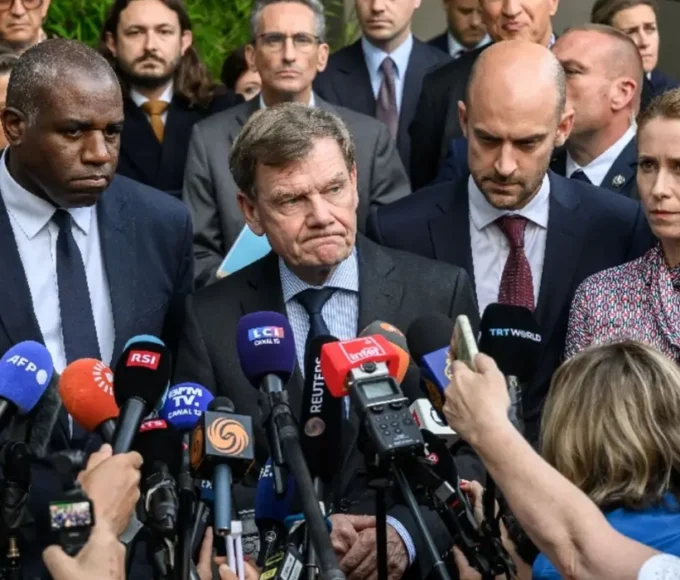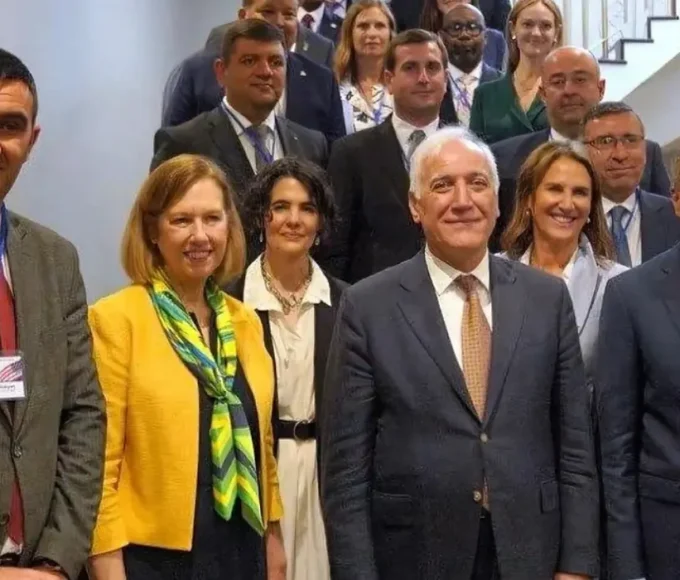In Gabon, on the night of August 30, 2023, less than an hour after the announcement of the re-election of Ali Bongo Ondimba, the army, citing a rigged election, “put an end to the regime”, also accused of massive corruption .
A month later, the general and president of the transition Brice Oligui Nguema remains adored as on the day of his putsch by the immense majority of the population and the political class who applaud the military for having “liberated” them from 55 years of ” Bongo dynasty.
Ali Bongo was elected in 2009 following the death of his father Omar Bongo Ondimba, who had ruled the country for more than 41 years.
The challenges remain immense, political, economic and social, for this firmly established military power, which has promised to “return power to civilians” through elections. In the third richest country in Africa per capita thanks to its oil but whose wealth is monopolized by a small minority, one in three inhabitants lives below the poverty line on less than 2 euros per day.
Coup d’Etat or “Freedom Coup”?
It was not a “coup d’état” but a “Freedom Coup”, the government and its supporters asserted to the international community. Perpetrated without shedding a drop of blood, to “avoid civil war”, according to the Memorandum on the Transition of the new power. To “liberate the people” from a “liberticidal and corrupt regime” and from “the domination of a small caste”.
Two days later, life had returned to normal.
The UN, Western capitals, the African Union (AU) and regional organizations have indeed “condemned” a “coup d’état” but weakly, and without economic sanctions to date. The head of European diplomacy, Josep Borrell, summed up the general feeling: the putsch followed an “institutional coup d’état” with “stolen elections”.
A military transition for how long?
From the first day, General Oligui led, and is still leading a month later at a frantic pace, intense consultations with all categories of the population.
It installs institutions responsible for managing the country while awaiting a new Constitution, “more respectful of human rights”, and subject to referendum, before “free and transparent elections”.
And it integrates “all the living forces of the Nation” into the process. The civilian Prime Minister, Raymond Ndong Sima, whom he appointed on September 7, is a leader of the former opposition, and his government includes political and civil society figures fiercely hostile to the Bongo camp. But also former leaders of his regime, which raised eyebrows but ultimately passed.
At the beginning of October, a “call for contributions” will be open to the entire population to “propose solutions”, before a major national conference which will summarize them, “hoped”, according to the Prime Minister, between April and June 2024. it is she who will decide the duration of the transition.
Social: promises and already impatience?
President Oligui has made numerous promises in favor of “the poorest”, retirees and the sick who do not receive their due, young people, one in three of whom is unemployed according to the UN…
But they have created an upsurge into which civil servants and employees from many sectors are rushing, multiplying strikes and blockages to claim their dues as quickly as possible. Mr. Ndong Sima could only urge them “to be patient” on Thursday.
What about the Bongos and the “corrupt”?
On the morning of the coup, Ali Bongo was placed under house arrest but declared free to move around a week later. He intends to stay in Gabon for the time being, assures the new power, which considered him “manipulated” in particular by his wife Sylvia and their son Noureddin since a serious stroke in 2018.
On the night of the putsch, Noureddin Bongo Valentin and several young senior officials in the presidential office close to him and his mother were arrested and shown at the foot of countless trunks, suitcases and bags overflowing with bank notes worth hundreds of millions of dollars. euros seized from their homes.
Ten, including Noureddin Bongo, were indicted and six imprisoned with him in particular for “corruption, embezzlement of public funds, money laundering, falsification of the signature of the President of the Republic”. Two former ministers (Oil and Public Works) were also imprisoned.
Sylvia Bongo Valentin, Franco-Gabonese, under house arrest since the putsch, was charged Thursday with “money laundering” and “forgery and use of forgery.”
“The First Lady and Noureddin have wasted Ali Bongo’s power,” General Oligui asserted on September 18. “Since his stroke, they have forged the president’s signature, they gave orders in his place” in addition to “corruption.” “Who was running the country” then?, asked the new strong man.
This article is originally published on /information.tv5monde.com









